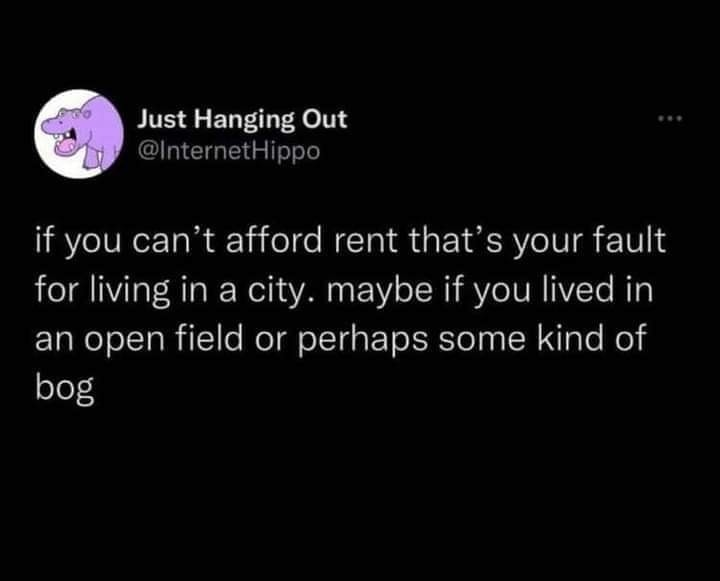this post was submitted on 22 Jan 2024
935 points (98.1% liked)
Political Memes
9126 readers
2454 users here now
Welcome to politcal memes!
These are our rules:
Be civil
Jokes are okay, but don’t intentionally harass or disturb any member of our community. Sexism, racism and bigotry are not allowed. Good faith argumentation only. No posts discouraging people to vote or shaming people for voting.
No misinformation
Don’t post any intentional misinformation. When asked by mods, provide sources for any claims you make.
Posts should be memes
Random pictures do not qualify as memes. Relevance to politics is required.
No bots, spam or self-promotion
Follow instance rules, ask for your bot to be allowed on this community.
No AI generated content.
Content posted must not be created by AI with the intent to mimic the style of existing images
founded 2 years ago
MODERATORS
you are viewing a single comment's thread
view the rest of the comments
view the rest of the comments

Most servers are there temporarily as they look for a high paying salary job, either directly or by getting an education.
And in most cases, you need to be in the city to apply for those jobs, to make the social connections that can help you find jobs, or to be where the good schools are.
Once you leave the city to go get a medium-paying job in a low cost of living area it makes it that much harder to eventually find the career a person wants.
Sure it's a decent life, small town livin', if that's what you're into, but people shouldn't be forced into that lifestyle because it's impossible to live in a city on an entry level wage.
Thanks for the well thought out reply, I'm gonna touch on a couple of your points:
That's often not true. Most jobs in my industry specify the maximum distance you can live from the office, and there isn't an official rule hiring managers would still usually hire the guy with an address in the same location instead of having to wait for them to relocate and all that. It might be unique to public jobs, but in my world hiring candidates from a different location requires you to foot the bill to relocate them, something that usually isn't possible unless they're some specialist.
Also anecdotally, when I lived with my parents in a small town ~7 years ago I didn't get any bites applying for jobs in cities.
My only career plan was "intellectually simulating office work", I got there eventually, but it involved scraping by in the city working odd jobs for about 3 years, plus an 8 month graduate certificate program.
I lived with roommates, and got really good at cooking with dry beans and grains, and has a modest amount of support from my family, but I eventually found a job I love.
And I got the interview through a connection I made at a in-person meetup group.
I know how hard it was for me ~5 years ago and I had some help from my family.
Rents are higher now, not sure I could do it with today's prices, definitely not without a bit of help from the bank of mom and dad. People who don't have that are screwed unless they get very lucky and find a good job right out of school.
Quick trip down the consequences of "servers should not expect to be able to live in a city", as is your implied thesis.
How many jobs exist in a city that are in this category? That is to say lower paying. Servers, sanitation people of assorted kind, transport, teachers, etc. How do you expect a city to function without them? People with low wages are also the people that may struggle to afford a commute.
This idea is very "having your cake and eating it too". A city needs to accommodate lower wage individuals or it will crumble. This neglects the expected basic living conditions for any given person.
Oh no. I mean waiters too. You want that nice restaurant? It's gotta have staff. Gas stations and corner stores? Need staff. Every shop you go in needs staff and they aren't going to be paid decent wages generally. Why are temp workers being excluded from being allowed in a city? Plenty of places need people on a temporary basis and plenty of people need such work.
Your second point ignores the problem I'm pointing out. Rent must be limited in some way so that all the people the city runs on can live and work there. Given the gratuitous mass of people in a city, the incentive for investment and development will always be there. I'll need a citation for the idea that an affordable city doesn't get money from such things. That argument reeks of "greed justifying why it's OK to have impractical and inhumane conditions". There are more metrics than money.